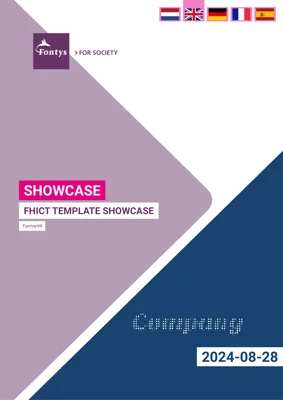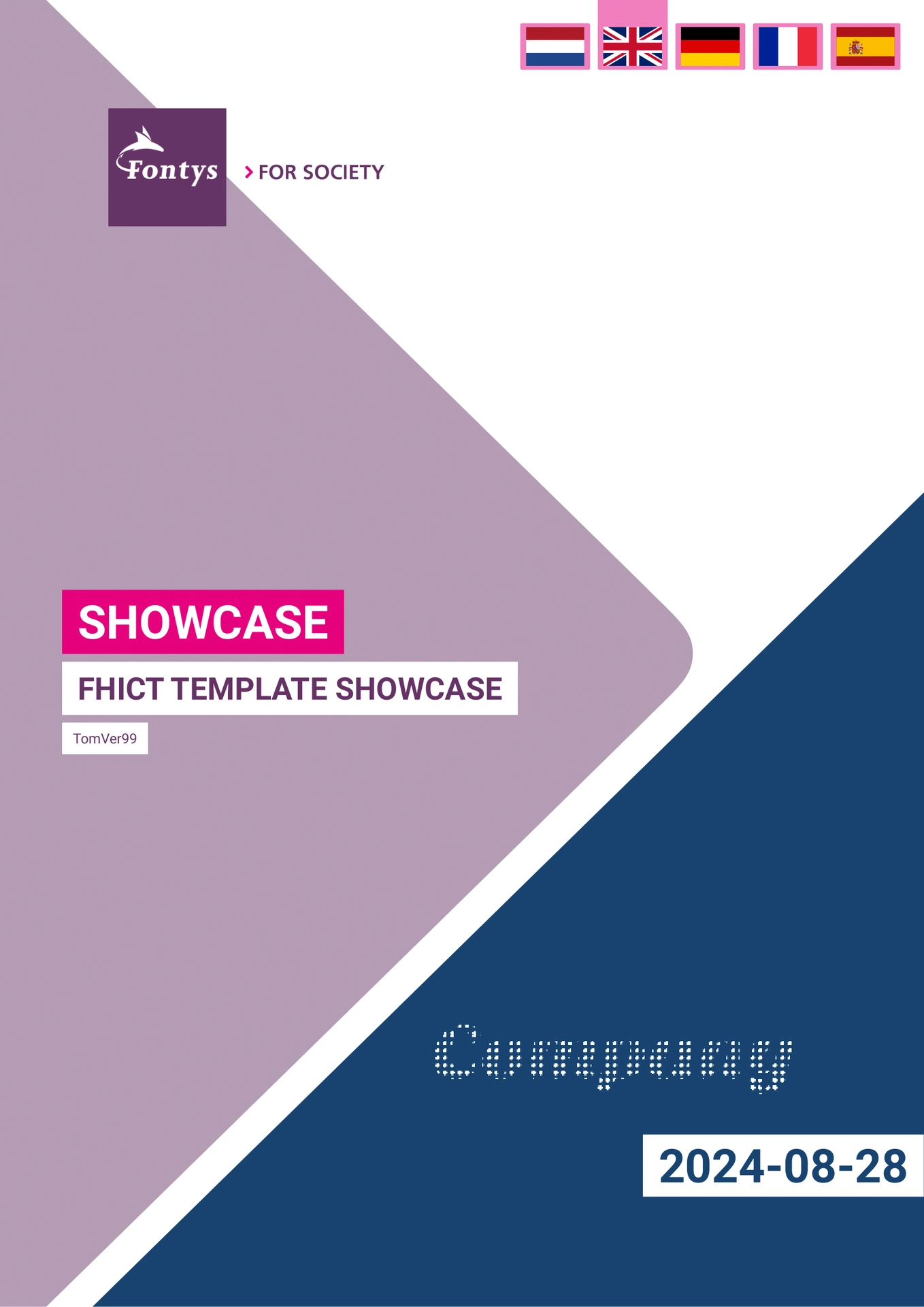


This is a document template for creating professional-looking documents with Typst, tailored for FHICT (Fontys Hogeschool ICT). It can also be used for other studies within Fontys It can also be found on the Typst Universe.
Introduction
Creating well-structured and visually appealing documents is crucial in academic and professional settings. This template is designed to help FHICT students and faculty produce professional looking documents.


Why use this template (and Typst)?
Typst
- Easy to use: Typst is a lightweight and easy-to-use document processor that allows you to write documents in a simple and structured way. You only need a browser or VSCode with just 1 extension to get started.
- Fast: Typst is fast and efficient, allowing you to focus on writing without distractions. It also gives you a live preview of your document.
- Takes care of formatting: Typst takes care of formatting your document, so you can focus on writing content.
- High quality PDF output: Typst produces high-quality PDF documents that are suitable for academic and professional settings.
FHICT Document Template
- Consistent formatting: The template provides consistent formatting for titles, headings, subheadings, paragraphs, and all other elements.
- Professional layout: The template provides a clean and professional layout for your documents.
- FHICT Style: The template follows the FHICT style guide, making it suitable for FHICT students and faculty.
- Configurable options: The template provides configurable options for customizing the document to your needs.
- Helper functions: The template provides helper functions for adding tables, sensitive content (that can be hidden), and more.
- Multiple languages support: The template can be set to multiple languages (nl, en, de, fr, es), allowing you to write documents in different languages.
- Battle tested: The template has been used without issue at FHICT, indicating its quality and reliability.
Requirements
- Roboto font installed on your system.
- Typst builder installed on your system (Explained in
Getting Started).
Getting Started
To get started with this Typst document template, follow these steps:
- Check for the roboto font: Check if you have the roboto font installed on your system. If you don’t, you can download it from Google Fonts.
- Install Typst: I recommend to use VSCode with Tinymist Typst Extension. You will also need a PDF viewer in VSCode if you want to view the document live.
- Import the template: Import the template into your own typst document.
#import "@preview/unofficial-fhict-document-template:1.2.1": * - Set the available options: Set the available options in the template file to your liking.
- Start writing: Start writing your document.
Helpful Links / Resources
- The manual contains a list of all available options and helper functions. It can be found attached to the latest release.
- The Typst Documentation is a great resource for learning how to use Typst.
- The bibliography file is written in BibTeX. You can use BibTeX Editor to easily create and edit your bibliography.
- You can use sub files to split your document into multiple files. This is especially useful for large documents.
Contributing
I welcome contributions to improve and expand this document template. If you have ideas, suggestions, or encounter issues, please consider contributing by creating a pull request or issue.
Adding a new language
Currently, the template supports the following languages: Dutch (nl), English (en), German (de), French (fr), and Spanish (es). If you want to add a new language, you can do so by following these steps:
- Add the language to the
language.ymlfile in theassetsfolder. Copy theensection and replace the values with the new language. - Add a flag
XX-flag.svgto theassetsfolder. - Update the README with the new language.
- Create a pull request with the changes.
Disclaimer
This template / repository is not endorsed by, directly affiliated with, maintained, authorized or sponsored by Fontys Hogeschool ICT. It is provided as-is, without any warranty or guarantee of any kind. Use at your own risk.
The author was/is a student at Fontys Hogeschool ICT and created this template for personal use. It is shared publicly in the hope that it will be useful to others.



